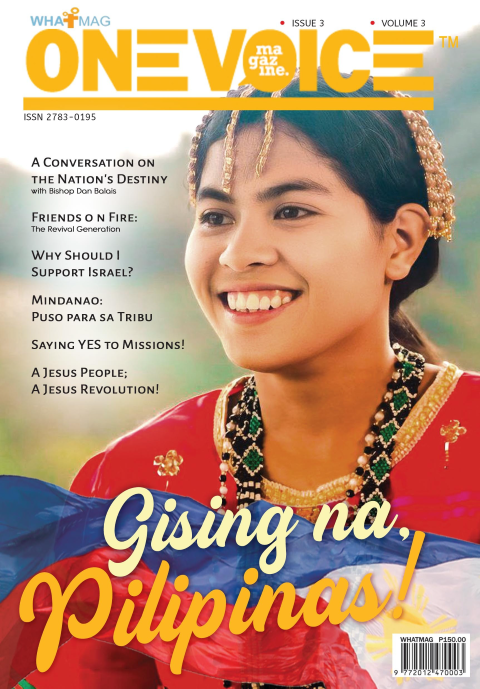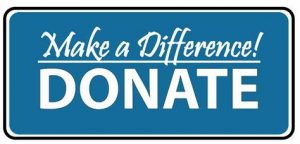There is a fondness that comes with the beauty of Bohol – the clear beaches with their colorful fish, the famous chocolate hills, the tiny brown tarsiers clinging to trees, the river rides… I had heard so much, so I wrote Bohol in my bucket list of places to visit. Little did I know that I would see the place soon – not for any grand vacation as I had hoped, but for service.
A 7.2 earthquake hit Central Visayas on October 15, 2013. I wish I could say that when the earthquake took place, I immediately felt as if I should jump into a plane and help. But no. Like most people, I was busy with work and was thinking: “Oh, someone else or some other group can help the Boholanos.” And so I went on my own merry little way, busy with life. I watched the news from the comfort of my home and cheered when I saw relief goods from different non-government organizations pouring in. These people had a lot of help, I thought. Then my complacency was shattered when a friend sent me a text message asking if One Voice was going to Bohol.
“No, most probably not,” I replied nonchalantly.
“But wouldn’t you want to know how the people are there? How the Church is doing?”
A heavy tug, which I thought was asleep, then pulled at my mind. Was I being apathetic? I cared from afar, anyhow. I thought about the reasons of why I wasn’t going: I was busy, very valid— currently in Cagayan de Oro as a coach to my students. I had done a lot of outreaches that year, so why one more? I had gone up the mountains and spoken to tribes people and met their need for a training center. I had gone to the red light district in a foreign land to pray and cry with street women. I had laid my hands on the sick and seen miraculous healings take place—all in one year. Surely, I’d burn out if I went on another one. I could sit this one out! I argued.
Or… came the soft reply, you could dig your well deeper and swim in divine strength.
My internal tug of war continued, till finally, I was confronted with the very reason One Voice was created: to be the voice for people who needed a voice. I was to listen to them speak; to mourn with those who mourned; to write what was difficult to express; to embrace the soul’s language of community. Wasn’t One Voice born for such a time as this? Wasn’t I born for such a time as this?
Flinging my hands to the air, I gave up my struggle and contacted a friend in the army. I had to ask him what we could do in Bohol since the people there were already receiving a lot of goods.
The answer he gave was short and simple: “Psychosocial help, Jan. Do trauma counseling. They need that a lot.”
I had a group of artists in my hands because of One Voice’s human resource: writers, photographers, layout artists. What better way to do trauma counseling than to inject art? We would give the earthquake victims a chance to tell their stories; a chance to open up their fears and sadness. Art could be used as their outlet to tell their story or to challenge them to dream again or hope again.
I rounded up a 9-man team. In the midst of preparations, Typhoon Yolanda struck. Would we still continue the trip to Bohol? Our little squad spent time asking Jesus what He thought of the matter. Yes. We should still go.
We flew to Bohol and met the children and their parents. The team divided into groups and employed different art media to release expression: paper mosaics, plaster of Paris molds, crayon art, marker art. There was singing, dancing, and face painting. We also had soccer kicking. Although not necessarily an art, soccer kicking was beneficial to the children who wanted so badly to have some fun. All these activities were happening simultaneously. They brought a smile to children and adults alike.
I took on mud sculpting as my way to show children that something as black and hopeless as mud could turn into something beautiful. The children got their fingers dirty and started creating mountains and dotting them with flowers and grass. Although their world was a broken world of broken houses, they could still imagine a world where beauty and life existed.
Truth be told, it was the parents that needed to debrief more than their children. I listened as one mother spoke of her phobia of entering buildings; of how fear seemed to control her life. Another parent wailed as she spoke of broken dreams and her family’s broken future in the midst of a broken house. One recounted with tears her story of saving her daughter in the nick of time before her house came crashing down. When I asked them to identify their feelings, they highlighted fear, sadness, pain, and hopelessness.
Being with the counseling group was a chance for me to weep with those who wept. It was a chance for me to listen to the voice of the broken; the voice of Bohol. As another mother spoke, I felt the Lord speak to my heart.
“I want to talk to her,” He said.
I looked at the mother and told her I believed God wanted to speak to her. It wasn’t going to be magical or phenomenal, like a burning bush or a flame of fire falling from the sky. No. God was going to speak to her gently, quietly. He wasn’t going to break her. He knew her tears. He would speak to her mind and heart; He was going to give her a picture or a word while we prayed. While many counselors find this method peculiar, there really are times when one must trust God when He says that He would speak.
In the silence, I asked, “Ama Dios, ano po ang gusto Niyong sabihin kay nanay?”
And the God who speaks, the God who brings healing, the God who quiets the roar of waves, the God who created the universe, the God who knows the number of hair strands on our head—this same God– gave Nanay a picture while we waited on Him.
Nanay said, “Oh, may rainbow akong nakikita!”
I smiled and told her the story of Noah and the rainbow shown to him after the catastrophic Great Flood. The rainbow was like a promise to her that God held her future, and her family’s future, securely in His hands.
In all this, I have learned to listen to the grieving voice. I have also learned to listen to the voice of hope. Life’s challenges can be cruel. However, we have a good God. We have a God whose heart we can trust in the midst of devastation and death.
When we go outside ourselves and lend people our voice, they somehow find their own. It can be a voice of pain, but it is a voice nonetheless; loudest in the world. What we do next matters: we lead them to the voice of the Lord.
I may not have swum with colorful fish for this particular trip, but I spent time swimming in a deeper well. I must say: I left Bohol a little wiser.
Janina Marie Rivera is the author of the book, A Night Bird Sings of Blindness and Fear and has co-authored the devotional, Dawns, published by OMF Literature. She is a contributing poet in the books Joyful Light and Whitmanthology: on Loss and Grief by Various Authors. She is the Editor-in-Chief of One Voice Magazine.






